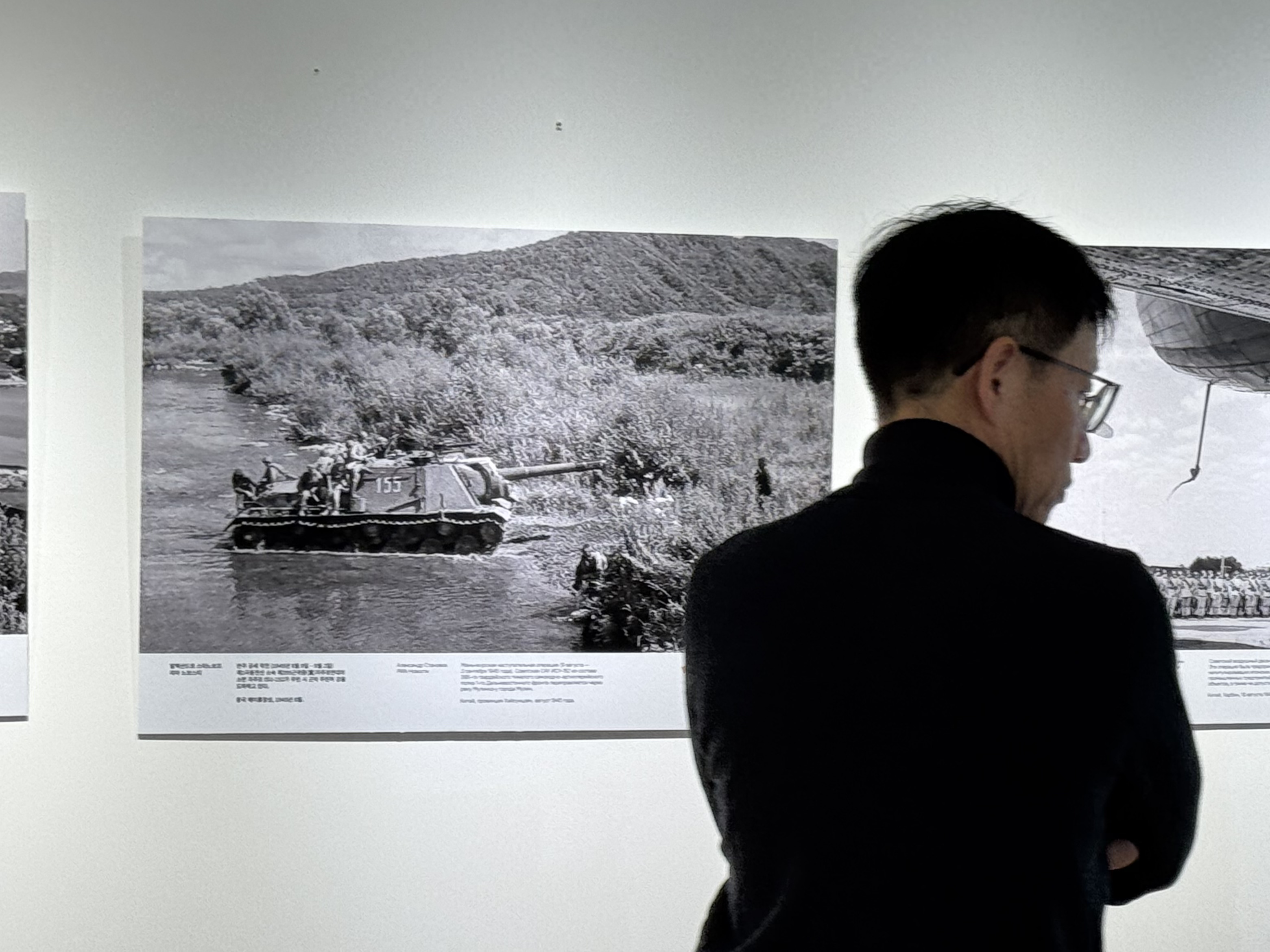Photo Exhibition “Liberation: Peace to the Nations” Opens in Seoul

The Chungdam (Vivian Choi) Art Gallery in Seoul hosted the official opening of the photo exhibition “Liberation. Peace to the Nations,” organized with the support of the Pushkin House in Seoul.
The exhibition highlights the joint struggle of the Soviet and Korean peoples against Japanese militarism and is based on the unique photo archive of the Soviet Information Bureau, held by the Rossiya Segodnya media group. The photographs taken by frontline correspondents feature rare historical images: the expanses of Manchuria, the Korean Peninsula and Sakhalin Island, as well as the encounters between Soviet officers, Korean fighters, and residents of the liberated territories.
The Soviet–Japanese War became the final stage of the Second World War and one of the swiftest military operations in the history of armed conflict. The joint actions of the USSR and the Korean people laid the foundation for long-term good-neighborliness and solidarity in the pursuit of peace and security, both within the region and beyond.
Opening the exhibition, Georgy V. Zinoviev, Ambassador Extraordinary and Plenipotentiary of the Russian Federation to the Republic of Korea, stated: “On August 9, the USSR, remaining true to its allied commitments, entered the war against Japan.
The success of the Manchurian Strategic Offensive Operation—unprecedented in world military history for its speed of preparation and precision of execution—broke the will of the Japanese militarists to resist and deprived them of hopes to prolong the war.
One of the most important outcomes of the Red Army’s successful advance was the liberation of northeastern China and the Korean Peninsula from decades of colonial rule. Preserving and protecting the memory of our ancestors, who made a decisive contribution to ending the Second World War, is of the utmost importance.”
Kim Song Men, Director of the Pushkin House in Seoul, emphasized: “Today it is especially important to remember that the liberation of Korea on August 15, 1945, was the result of joint efforts by the Soviet and Korean peoples. We recall this historic moment not only to honor the past, but also to remind ourselves of the origins of the value of peace that shapes our present and future.”
Vasily Pushkov, Director for International Cooperation at the Rossiya Segodnya media group, noted: “The Korean people, despite the harsh conditions of the occupation period, made a significant contribution to the struggle against Japanese militarism, and the Korean independence movement became an integral part of the broader victory over aggression in Asia.
Our project aims to preserve the historical memory that unites the peoples of the Russian Federation and the Republic of Korea. Archival documents and photographs play a crucial role in conveying the spirit of those difficult years.”
Edward De, Assistant Professor at the Department of Russian and Central Asian Studies at Keimyung University, noted that the Russian language, alongside other great world languages, has been and remains part of this historical process — “a language of memory, science, and hope.”
“Today, as we commemorate the 80th anniversary of the liberation of the Korean Peninsula, it is especially important to remember that liberation is not only a political act, but also the restoration of human dignity, culture, and the spiritual bond between peoples,” he said.
Ekaterina Popova, Assistant Professor in the Department of Russian Language and Literature at Sungkyunkwan University, spoke about the importance of events devoted to this stage of the Second World War:
“As attempts to falsify the history of World War II become more frequent, it is our duty to honor the memory of the soldiers who gave their lives for the Victory over fascism and Japanese militarism—for the peaceful sky and freedom of oppressed peoples, including on the Korean Peninsula. This exhibition of documentary photographs is a vivid demonstration of the historical truth about events that must never fade from our collective memory.”
In Russia, the project has already been presented at educational institutions in Vladivostok, Khabarovsk, Yuzhno-Sakhalinsk and Kamchatka. Its international program began in early September in Beijing, Karachi and Ulaanbaatar, and later continued at educational and cultural venues across China and South Korea, involving leading universities and cultural centers across Asia.
The project “Liberation. Peace to the Nations” is implemented with the support of the Presidential Fund for Cultural Initiatives and is dedicated to the 80th anniversary of the Victory over militarist Japan and the end of the Second World War. It continues the earlier projects “Liberation” and “Liberation. The Road to Victory,” which together reached an audience of several million people. The program includes photo exhibitions in Russia and abroad, as well as educational events using mobile exhibitions
Read more on Sputnik





